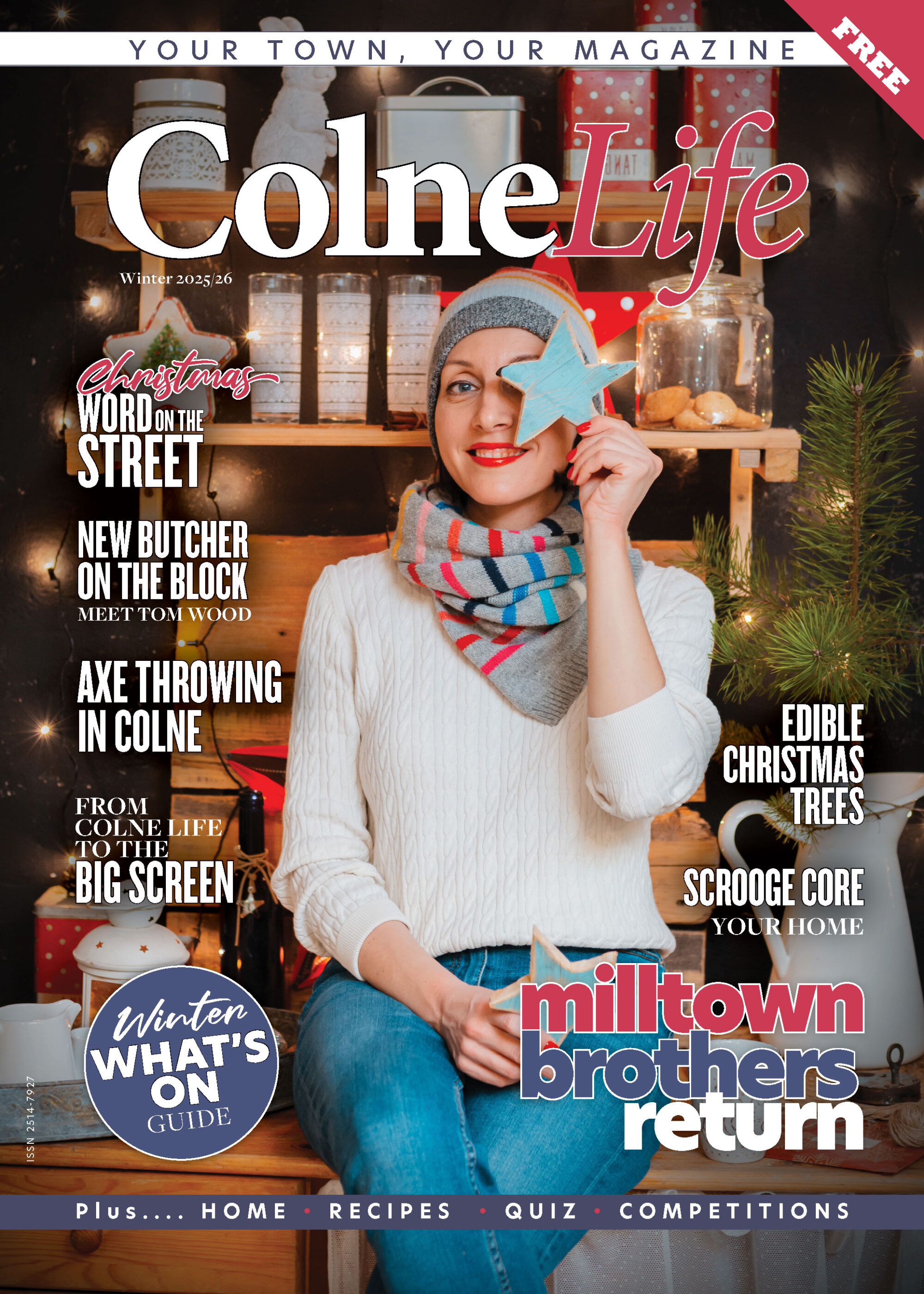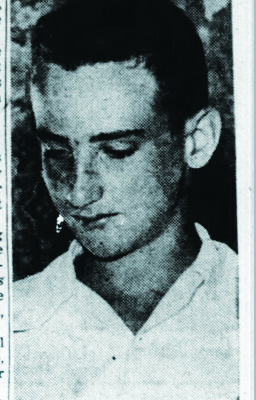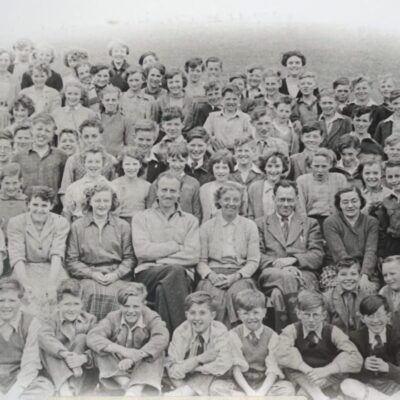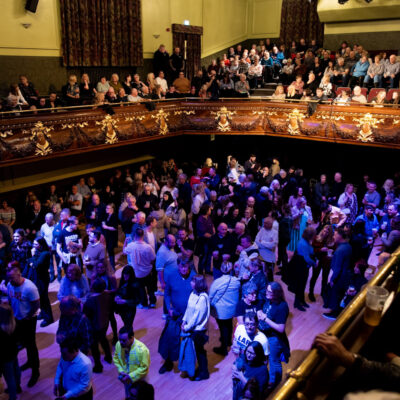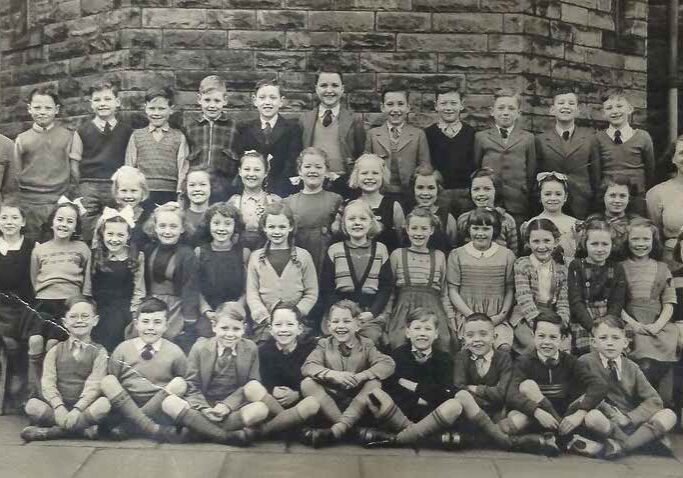
1940s School Day Memories in Lancashire
by Geoff Crambie
GROWING UP IN COLNE, GEOFF CRAMBIE TAKES A LOOK AT THE MEMORIES OF A POSTWAR EDUCATION IN THE FORTIES AND FIFTIES
Following the disruption, hardship and challenges of the Second World War, the post war years brought a sense of optimism and excitement, with families at last enjoying peacetime, local historian Geoff shares his memories of 1940s school days.
Memories of 1940s school days in post-war Lancashire
For his first day at Lord Street Primary School in 1948, Geoff had a pair of shoes made especially for him, but he was not pleased!
“I wanted iron shoes, but my mother insisted that I wear rubber ones, and I was so disappointed!”
Geoff sighed as he pulled a pair of tiny, black shoes out of a box. “I had clog irons, which provided good grip when walking up steep streets and in the snow. They were cosy, but you had to wear thick wool socks with them. They lasted me a year and a half! My mother forbade me from having iron because I would run around shooting sparks everywhere. We went to Sam Ansell’s in Colne, where he measured my feet and told me that he also thought it was a bad idea for youngsters to have iron! He was the last clogger in Colne.”
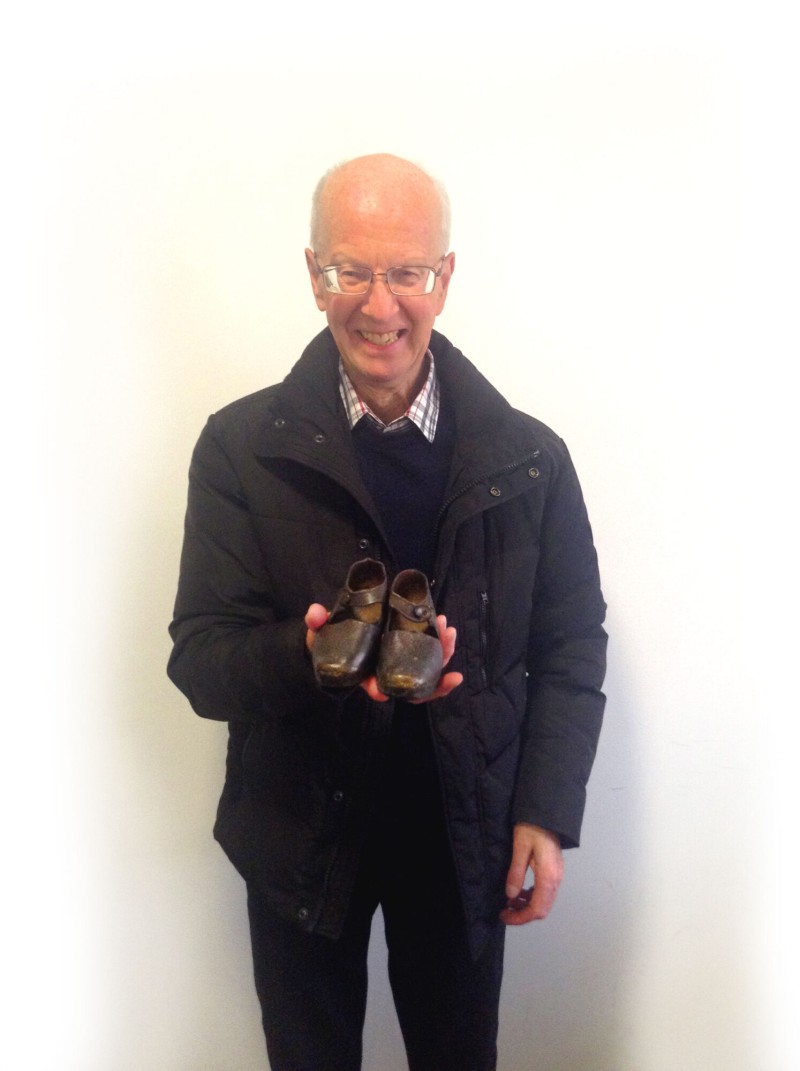
Geoff with his clogs
A tradition in the 1940s meant that the weekend before school started, kids would take a trip to a studio to have their Polyfoto’s taken. “I can still clearly recall going to get it done, and the photographer threw a ball at me to make me look and giggle. My mother cut the photos up and sent them to everyone in the family once we had them printed off,” stated Geoff. “I’ve worn glasses for 75 years, but I couldn’t wear them that weekend since mine were broken! I purchased my spectacles from Halliwells, a store that had the town’s first-ever phone number in the 1940s. We would bring my broken glasses back there every time I broke them, which was once a month!”
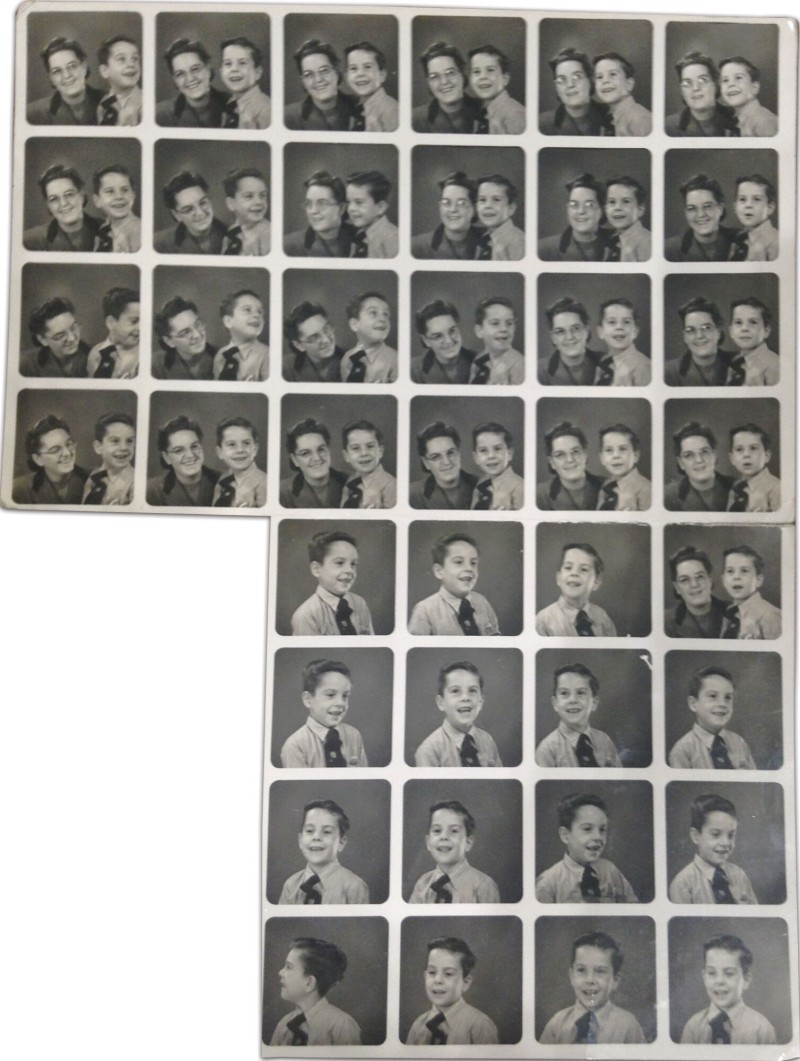
Geoff and his mum in the Polyfoto
Each morning before school Geoff would step out of the house, with sugar lumps in his pocket. Usually close by was farmer John Waite and his huge white horse Prince, doing the milk round. “I would take Prince a couple of sugar lumps to eat. John delivered milk to our house and I still get milk from the same family, 82 years later. He would let me hop on the cart and he’d take me up to school. I felt like a king sat on the back, sometimes he’d let my pals hop on with me!” said Geoff. “Miss King, the headmistress of the infants, was standing outside in the school yard. It was the first day of school. Being only five, I didn’t want to attend school. I can still picture her standing in front of me, as I kicked her in the shin with my brand-new clogs. Still to this day, I can make out her face. My mother was visibly embarrassed as I turned to look at her. Miss King placed me in a corner of the class by myself. It wasn’t a great start.” Geoff chuckled mischievously.
“I kicked her in the shin with my brand new clogs!”
Geoff was handed a slate and chalk on the first day and was instructed to practise his alphabet. He had no idea that two months later, they would continue to practise writing their alphabet religiously every day. “You were compelled to write neatly! The teachers were terrifying. If you misbehaved, Miss Foulds would smack you on the hand with her cane, which was painful. Only the headmaster, Mr. Doig, was permitted to strike you on the behind. We called Christine Walker, a girl in my class who could speak for England, ‘Chatty.’ She couldn’t help speaking, and every time, she got the stick!”
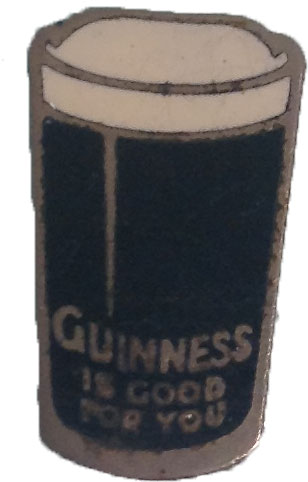
Geoff’s badge
“‘Guinness is good for you’ is written on one of the little badges I wore on my uniform. I started wearing it when I was eight years old, and I wouldn’t take it off when I was at school. The headmaster, Mr. Doig, ordered me to remove my badge, but I refused. I wouldn’t remove it during my entire time at school,” Geoff said stubbornly.
“I sent a love letter once to a girl in my class called Elaine, I wanted to take her to collect pea pods together and eat them! She never wrote back to me,”
Children at Geoff’s primary school were expected to arrive home for lunch as there were no school dinners provided. “It only took me ten minutes to get home because I only lived down the road, but they would never do that in schools anymore. My mum would make me cheesy baked beans on toast when she got home from working at the pet store. At lunchtime, you could do whatever you wanted. High school dinners cost five shillings per week when I started there. The dinner ladies served delicious meals like jam rolypoly and custard, cheese slices with tomatoes on them, mashed potatoes, and garden peas,” recalled Geoff.
Geoff’s school pal, Mel Hartley, had been making aeroplanes in class. The children would get a piece of blotting paper and put the pen nib at the end of it and they would fly! “Boys would aim for the girls they fancied on the back of their head, I sent a love letter once to a girl in my class called Elaine, I wanted to take her to collect pea pods together and eat them! She never wrote back to me,” sighed Geoff. “Mr Melling, our teacher, gave Mel the stick on his hands. Mel was so outraged over being hit that he stormed into the art class at school and stole some strong sticky tape. He warned us in class to keep an eye on Mr Melling’s face at lunchtime when he was about to ring the school bell. The bell was silent as he went to ring it! Mel had glued the clanger to the inside of the bell so it wouldn’t ring, and his face froze. Mr Melling was a strict man, we were all rolling about laughing, we were shocked he took it lightly!”
Mel had glued the clanger to the inside of the bell so it wouldn’t ring…
Mr Melling was the only teacher at the school who had a car, which he parked in the schoolyard. When the students played football or cricket, his windows were occasionally broken, but he still parked it there! “If he found out who did it, he’d go berserk and they’d get sent to the office to get hit six times on the behind.” I once damaged his wing mirror but never admitted it; I was playing cricket and whacked the bat incredibly hard; I was never caught,” Geoff stated.

Geoff’s glasses from primary school
“If you were naughty, Mr Doig would make you stand outside his office for a quarter of an hour, the suspension was to teach us a lesson, everyone got so scared. He always used to say ‘this will hurt me more than it will hurt you’ before hitting our behind! He was one of the strictest people I’ve ever known in my life. He came into the classroom on February 6th 1952, and he looked round slowly. We were all so worried another window had broken, or someone had done something naughty. He then shouted, ‘the King is dead, long live the Queen!’ We were all made to stand up and chant it, they wouldn’t do that now though! Mr Doig tragically died, he went up to Scotland in a fishing boat and fell overboard and drowned!”
Geoff returned to Lord Street Primary School to teach the pupils about Colne’s history. “I did it for ten years, it was great going back into the classes and seeing where I used to sit; everything felt so small! School days they say, are the best days of your life, but I can tell you, it wasn’t all happy days, but we did have some cracking memories!” remarked Geoff.
ColneLife Spring 23
